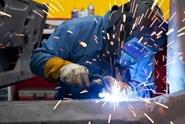Government/Policy

June 11, 2017
Section 232: Could Steel Investigation Include Fabricated Parts?
Written by John Packard
Steel Market Update received a series of questions regarding Section 232 and its potential impact on companies that fabricate steel components. We are sharing a portion of the responses to the questions from Daniel Pearson of the Cato Institute (former International Trade Commission chairman) and trade attorney Lewis Leibowitz.
Following are questions we received from a large service center:
“I would like to know if and/or how you think the 232 rule would flow down to include, and how it would affect, steel fabricated components.
“If you put a higher tariff on imported steel, but do not apply the same tariff to goods imported using that steel, will it just drive U.S. manufacturing offshore?
“Sounds like it would give a large advantage to foreign steel fabricating competitors that are able to import finished or component products that do not carry a steel tariff and use non-tariff steel.
“Eventually, over the long term, the companies that currently use steel may leave the U.S. (something the administration is trying to prevent), and the steel industry will be left with fewer U.S.-based customers to use their steel. Not good.
“If a 232 rule is passed on steel, then all imported components and finished products that contain that steel need to carry a corresponding tariff equal to the percentage of steel contained in the product. Just a thought. Now please ask Daniel Pearson the question and we can both hang on.”
Pearson responded to the questions with the following:
“My view is that the 232 investigation deals with the national security implications of steel imports, not finished products that contain steel. Since the investigation was not conceived to address imports of more-finished steel products, I doubt they could be included in [Commerce Secretary Wilbur] Ross’s recommendations to the president without violating the 232 statute. In other words, any action that the president might take most likely would be limited to basic steel products.
“[The service center’s] observations about the effects on downstream manufacturers from import restrictions that raise steel prices in this country (and not for competitors in other countries) are absolutely correct. My experience at the ITC was that the steel industry never expressed any concern for the competitive posture of its customers when AD/CVD measures were being considered. If anything, the attitude was, “If they can’t compete, let them bring their own AD/CVD petitions.” (Trade remedy attorneys like that approach, too.) At the DOC/USTR hearing in April 2016 on global overcapacity, the tubular industry recounted how they were unable to compete once orders went into effect on hot rolled coil. So they brought petitions of their own against various types of welded tubulars. Many in the steel industry think this is the way the system is supposed to work.
“Nothing I’ve seen from Ross or the people advising him would make me think he’s going to be terribly sensitive about the needs of users. If that was his concern, he never would have started down this path.
“Negatively affected steel users would do well to prepare to lobby DOC for exclusions/exemptions for the types of steel they need. A lot of that happened during the steel 201 restrictions 15 years ago, and it likely will again.”
Leibowitz joined the conversation when he told us:
“Dan [Pearson] is right, but the devil is in the details. I work with some clients that bring in fabricated products. Some could be covered, depending on their tariff classification. Most basic steel products are classified in Chapter 72, but a few products in Chapter 72 are fabricated. By the same token, some steel products (e.g., rails, pipes) are classified in Chapter 73. So are flanges, and that industry has been pushing hard to include flanges in the national security relief.
“It is very likely that most of Chapter 72 will be covered by relief, whether ‘downstream’ products or basic steel products. Chapter 73 is more complicated. Much of Chapter 73 is not ‘steel’ at all….”









